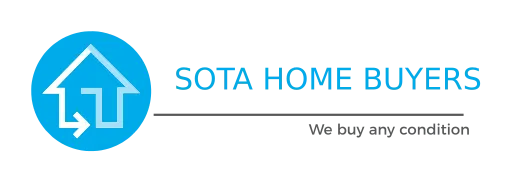How to Sell Your Vacant House Fast in Minnesota
A vacant house can quickly become a financial burden. Whether it’s due to a recent move, an inheritance, or a tenant who just moved out, a property sitting empty in Minnesota is vulnerable to vandalism, maintenance issues, and code violations—not to mention monthly expenses like taxes and insurance. If you’re looking to sell your vacant house fast in Minnesota, here’s your complete guide to doing it legally, efficiently, and profitably.
Why Vacant Homes Are Harder to Sell
Unlike occupied or staged homes, vacant houses can:
- Appear neglected or attract squatters
- Accumulate maintenance problems (like plumbing leaks or pests)
- Raise red flags for lenders or buyers
- Stay on the market longer due to lack of visual appeal
That’s why it’s essential to be proactive and strategic if you want a quick sale.
Step 1: Make Sure the Property Is Secure and Maintained
Before putting your home on the market:
- Change the locks and secure all windows and doors
- Keep the yard mowed and snow cleared (as needed)
- Turn off or maintain utilities to prevent damage
- Schedule regular check-ins or hire a property manager if you’re not nearby
This preserves the home’s value and keeps it compliant with Minnesota city codes.
Step 2: Decide on Your Selling Strategy
There are three main options for selling a vacant house fast in Minnesota:
1. Cash Home Buyers
These local investors buy houses “as-is,” without repairs or showings. It’s ideal for homes that are:
- Outdated or damaged
- In less desirable locations
- Needing a fast closing (7–21 days)
Pros: No realtor fees, no cleaning, and fast closings
Cons: You might get slightly below market value
2. Real Estate Agent Listing
If the home is in good condition or you’re willing to make minor updates, working with a Minnesota-based agent can expose the home to more buyers.
Pros: Higher sales price possible
Cons: Longer selling timeline, commissions, and carrying costs
3. For Sale By Owner (FSBO)
You can list the property yourself, but be prepared to handle pricing, negotiations, paperwork, and buyer showings.
Best for: Experienced sellers who want to avoid commissions and aren’t in a rush.
Step 3: Boost Curb Appeal and Presentation
Even if the home is empty, small investments can make a big difference:
- Clean or repaint the exterior
- Add fresh mulch or plants
- Brighten up the interior with lighting
- Stage virtually using digital software
In a competitive Minnesota market, a clean and well-presented vacant home can attract multiple offers.
Step 4: Price It to Sell
Vacant homes are often appraised lower due to perceived risks. Work with a knowledgeable agent or appraiser to set a realistic and competitive price. You’ll get more interest and may even spark a bidding war.
Use tools like:
- Comparative Market Analysis (CMA)
- Zillow and Redfin trends
- Local agent input
Step 5: Disclose Everything
Minnesota law requires home sellers to provide full disclosure of known material defects. Even though the home is vacant, you must inform potential buyers of:
- Mold or water damage
- Foundation issues
- Electrical or plumbing concerns
Honesty speeds up transactions and avoids legal delays later.
Step 6: Close Quickly and Smoothly
If you’re selling to a cash buyer, closing can happen in as little as a week. Traditional sales may take 30–45 days, depending on the buyer’s financing. Work with a local title company to handle the paperwork and ensure a clean transfer of ownership.
Bonus Tips for a Fast Sale in Minnesota
✅ Target Investors – They love vacant homes for fix-and-flip or rental projects
✅ Offer Buyer Incentives – Like a repair credit or covering closing costs
✅ List on Multiple Platforms – MLS, Zillow, Facebook Marketplace, and local forums
✅ Respond Fast – Time kills deals. Stay on top of inquiries and offers.
Final Thoughts
Selling a vacant house in Minnesota doesn’t have to drag on for months. Whether you’re dealing with an inherited property, a second home, or a fixer-upper, you have solid options to sell fast, avoid extra costs, and move on.
The key is to choose the right strategy—cash buyer, agent, or FSBO—based on your timeline, the home’s condition, and your goals. With the right preparation and local market knowledge, you can turn that empty house into cash in your pocket faster than you think.
| Probate | Fire Damage |
| Inherited Home | Water Damage |
| Vacant | Bankruptcy |
| Title Issues | Foreclosure |
| Mold | Pre-foreclosure |
| Hoarder Home | Foundation Issues |
| Divorce |


